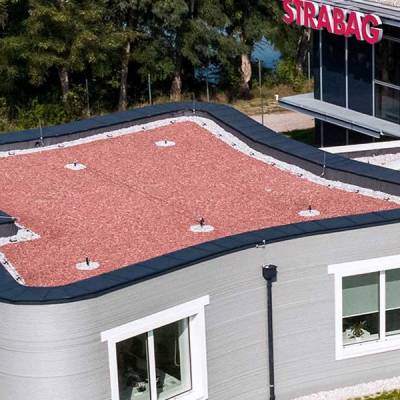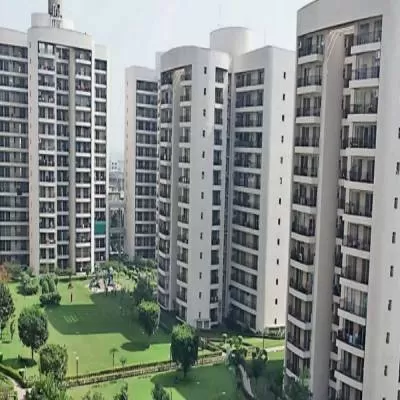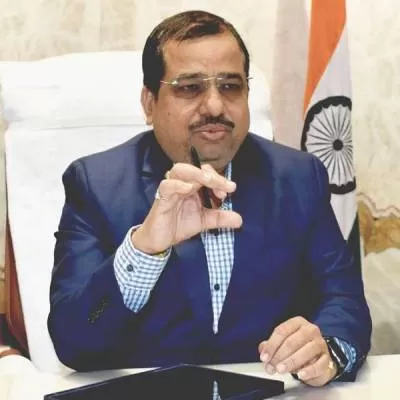- Home
- Real Estate
- 76% of LED bulb brands and 71% of LED downlighter brands in India flout consumer safety standards
76% of LED bulb brands and 71% of LED downlighter brands in India flout consumer safety standards
In a Nielsen study conducted across four major Indian cities – New Delhi, Mumbai, Ahmedabad and Hyderabad – 76 per cent of LED bulb brands and 71 per cent of LED downlighter brands across 200 electrical retail outlets were found to be non-compliant with consumer safety standards, as prescribed and mandated for lighting products by the Bureau of Indian Standards and Ministry of Electronics and Information Technology, Government of India. These spurious products pose a serious safety hazard for consumers besides causing significant loss in tax revenues for the Government of India, as they are illegally manufactured and sold.
The findings from the key markets surveyed showed that 48 per cent of LED bulb brands had no mention of manufacturer’s address and 31 per cent brands did not have a manufacturer’s name, ie, these brands violate Indian legal metrology regulations and are manufactured illegally. Similarly, the study conducted on LED Downlighters showed that of the total sample size, 45 per cent brands did not have a manufacturer’s name and 51 per cent brands had no mention of the manufacturer’s address.
However, Mumbai fared the best among all the cities surveyed on most counts. Compared to nearly three quarters of all LED bulb brands and downlighters brands surveyed in Delhi being non-compliant with BIS standards, in Mumbai spurious brands in both these categories are limited to a range of 36-41 per cent as per the survey. However, as far as other violations regarding manufacturer’s name and address are concerned, Mumbai has limited the damage in spurious brands surveyed to between 2-5 per cent, that sits pretty in the context of the situation in other markets surveyed.
The illustration below details out the city wise nature of violations and puts the data in a national context.
As per ELCOMA (Electric Lamp and Component Manufacturers’ Association), the total LED Market in India is worth Rs 10,000 crores, with LED bulbs and downlighters constituting 50 per cent of overall LED market, being widely used across homes, offices and workspaces.
Rakesh Zutshi, President, ELCOMA and Managing Director, Halonix Technologies, says, “The large number of non-compliant manufacturers of LED bulbs and downlighters threaten fair competition in the LED lighting market, especially for those companies that are compliant to all mandatory consumer safety standards. It is very unlikely that the manufacturers of these spurious LED Bulbs and Downlighters pay any GST to the government, thereby causing a huge loss to the exchequer.”
Further commenting, Sumit Joshi, Vice Chairman and Managing Director, Philips Lighting India, says, “As per an ELCOMA study, the Indian LED Lighting market has grown from Rs 500 crore in 2010 to Rs 10,000 crore today and constitutes over 45% of the overall Rs 22,000 crore lighting industry in India, comprising of all categories like GLS, FTL, CFL and other lamps. Given the government’s push towards adoption of LEDs and their general consumer popularity, LED lighting will constitute a majority share of the total lighting market in the next few years. Given this scenario, it is important for the government to act against these spurious and non-branded products for safeguarding consumer safety and protecting their revenues against these companies.”
Sunil Sikka, Former President ELCOMA and Havells India, remarks, “The market share of spurious and non-compliant LED products is steadily increasing, much to the concern of compliant manufacturers in the country. This is also a huge concern for the average consumer because 76 per cent of LED brands and 71 per cent of downlight brands do not adhere to consumer safety standards as set by the Government of India. Despite these non-compliant products openly flouting government regulations, they are being openly sold in marketplaces around the country. This has led to an increase of unsafe and illegal products being used in households and offices by Indian consumers, endangering many.”
Raju Bista, Vice President, ELCOMA and Managing Director of Surya Roshni, observes that these non-compliant products would also impact energy efficiency in the country “Under the Unnat Jeevan by Affordable LEDs and Appliances for All (UJALA) Scheme, the government is targeting replacing 770 million incandescent bulbs across India with LEDs. To this end, the Bureau of Energy Efficiency(BEE) has also stated that star ratings for LED bulbs are to be mandatory to ensure only quality products are available to consumers. However, the growing number of non-compliant and illegal products is worrisome as the non-compliant manufacturers undertake various cost-cutting mechanisms, making them less energy efficient. As these manufacturers already flout industry regulations and BIS standards with no action being taken against them, it is extremely likely that they will be non-compliant with energy efficiency parameters as well.”
The Indian Lighting industry unanimously recommends a need for stronger enforcement for compliance to these safety standards prescribed and mandated by the Bureau of Indian Standards and Ministry of Electronics and Information Technology, Government of India. The spurious and non-branded LED products are a serious threat to not just the organised and compliant market players but also to the government’s key programmes like Make in India and demonetisation. In addition, they also impact government’s tax revenue collections, which would have otherwise been contributed by the formal sector, defeat investment objectives and go against the ‘ease of doing’ business philosophy of the government of the day.
The Nielsen study was conducted across 200 retail electrical goods outlets across four major Indian cities – New Delhi, Mumbai, Ahmedabad and Hyderabad. The survey was conducted in July 2017.
Levels of non- compliance regarding metrics such as manufacturer’s name and address least in Mumbai In a Nielsen study conducted across four major Indian cities – New Delhi, Mumbai, Ahmedabad and Hyderabad – 76 per cent of LED bulb brands and 71 per cent of LED downlighter brands across 200 electrical retail outlets were found to be non-compliant with consumer safety standards, as prescribed and mandated for lighting products by the Bureau of Indian Standards and Ministry of Electronics and Information Technology, Government of India. These spurious products pose a serious safety hazard for consumers besides causing significant loss in tax revenues for the Government of India, as they are illegally manufactured and sold. The findings from the key markets surveyed showed that 48 per cent of LED bulb brands had no mention of manufacturer’s address and 31 per cent brands did not have a manufacturer’s name, ie, these brands violate Indian legal metrology regulations and are manufactured illegally. Similarly, the study conducted on LED Downlighters showed that of the total sample size, 45 per cent brands did not have a manufacturer’s name and 51 per cent brands had no mention of the manufacturer’s address. However, Mumbai fared the best among all the cities surveyed on most counts. Compared to nearly three quarters of all LED bulb brands and downlighters brands surveyed in Delhi being non-compliant with BIS standards, in Mumbai spurious brands in both these categories are limited to a range of 36-41 per cent as per the survey. However, as far as other violations regarding manufacturer’s name and address are concerned, Mumbai has limited the damage in spurious brands surveyed to between 2-5 per cent, that sits pretty in the context of the situation in other markets surveyed. The illustration below details out the city wise nature of violations and puts the data in a national context. As per ELCOMA (Electric Lamp and Component Manufacturers’ Association), the total LED Market in India is worth Rs 10,000 crores, with LED bulbs and downlighters constituting 50 per cent of overall LED market, being widely used across homes, offices and workspaces. Rakesh Zutshi, President, ELCOMA and Managing Director, Halonix Technologies, says, “The large number of non-compliant manufacturers of LED bulbs and downlighters threaten fair competition in the LED lighting market, especially for those companies that are compliant to all mandatory consumer safety standards. It is very unlikely that the manufacturers of these spurious LED Bulbs and Downlighters pay any GST to the government, thereby causing a huge loss to the exchequer.” Further commenting, Sumit Joshi, Vice Chairman and Managing Director, Philips Lighting India, says, “As per an ELCOMA study, the Indian LED Lighting market has grown from Rs 500 crore in 2010 to Rs 10,000 crore today and constitutes over 45% of the overall Rs 22,000 crore lighting industry in India, comprising of all categories like GLS, FTL, CFL and other lamps. Given the government’s push towards adoption of LEDs and their general consumer popularity, LED lighting will constitute a majority share of the total lighting market in the next few years. Given this scenario, it is important for the government to act against these spurious and non-branded products for safeguarding consumer safety and protecting their revenues against these companies.” Sunil Sikka, Former President ELCOMA and Havells India, remarks, “The market share of spurious and non-compliant LED products is steadily increasing, much to the concern of compliant manufacturers in the country. This is also a huge concern for the average consumer because 76 per cent of LED brands and 71 per cent of downlight brands do not adhere to consumer safety standards as set by the Government of India. Despite these non-compliant products openly flouting government regulations, they are being openly sold in marketplaces around the country. This has led to an increase of unsafe and illegal products being used in households and offices by Indian consumers, endangering many.” Raju Bista, Vice President, ELCOMA and Managing Director of Surya Roshni, observes that these non-compliant products would also impact energy efficiency in the country “Under the Unnat Jeevan by Affordable LEDs and Appliances for All (UJALA) Scheme, the government is targeting replacing 770 million incandescent bulbs across India with LEDs. To this end, the Bureau of Energy Efficiency(BEE) has also stated that star ratings for LED bulbs are to be mandatory to ensure only quality products are available to consumers. However, the growing number of non-compliant and illegal products is worrisome as the non-compliant manufacturers undertake various cost-cutting mechanisms, making them less energy efficient. As these manufacturers already flout industry regulations and BIS standards with no action being taken against them, it is extremely likely that they will be non-compliant with energy efficiency parameters as well.” The Indian Lighting industry unanimously recommends a need for stronger enforcement for compliance to these safety standards prescribed and mandated by the Bureau of Indian Standards and Ministry of Electronics and Information Technology, Government of India. The spurious and non-branded LED products are a serious threat to not just the organised and compliant market players but also to the government’s key programmes like Make in India and demonetisation. In addition, they also impact government’s tax revenue collections, which would have otherwise been contributed by the formal sector, defeat investment objectives and go against the ‘ease of doing’ business philosophy of the government of the day. The Nielsen study was conducted across 200 retail electrical goods outlets across four major Indian cities – New Delhi, Mumbai, Ahmedabad and Hyderabad. The survey was conducted in July 2017.




















